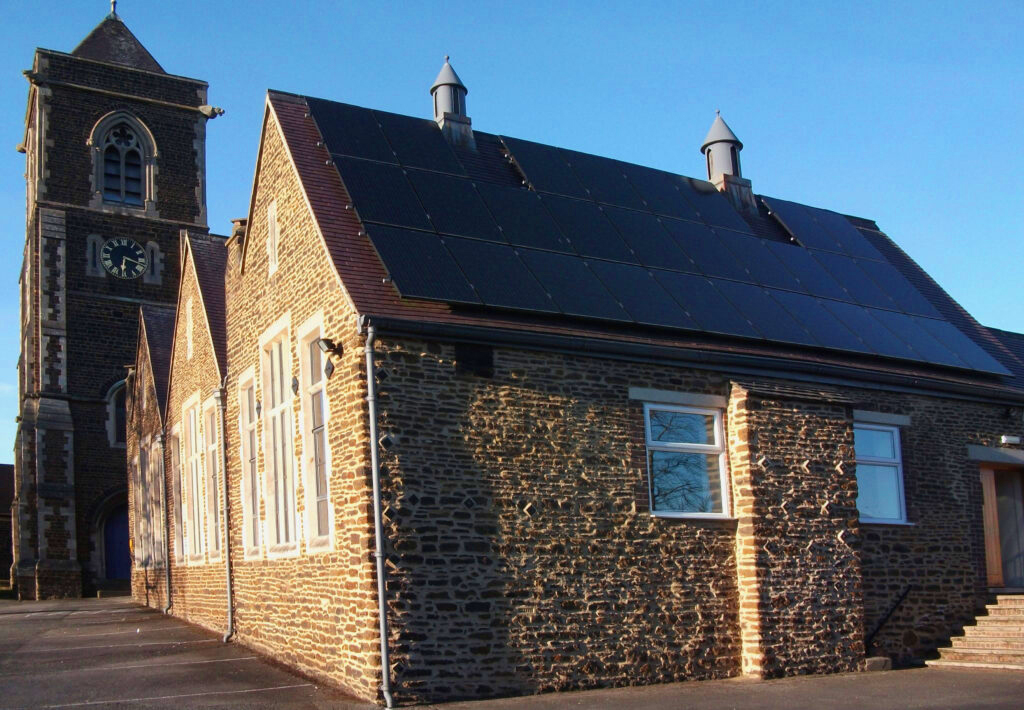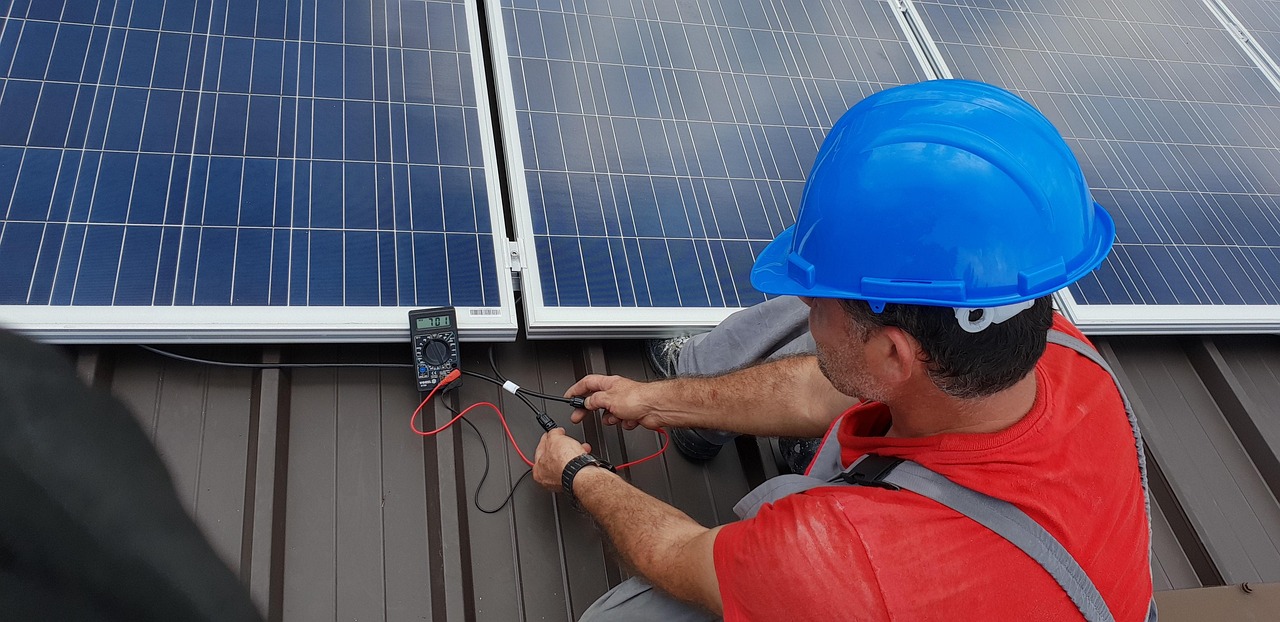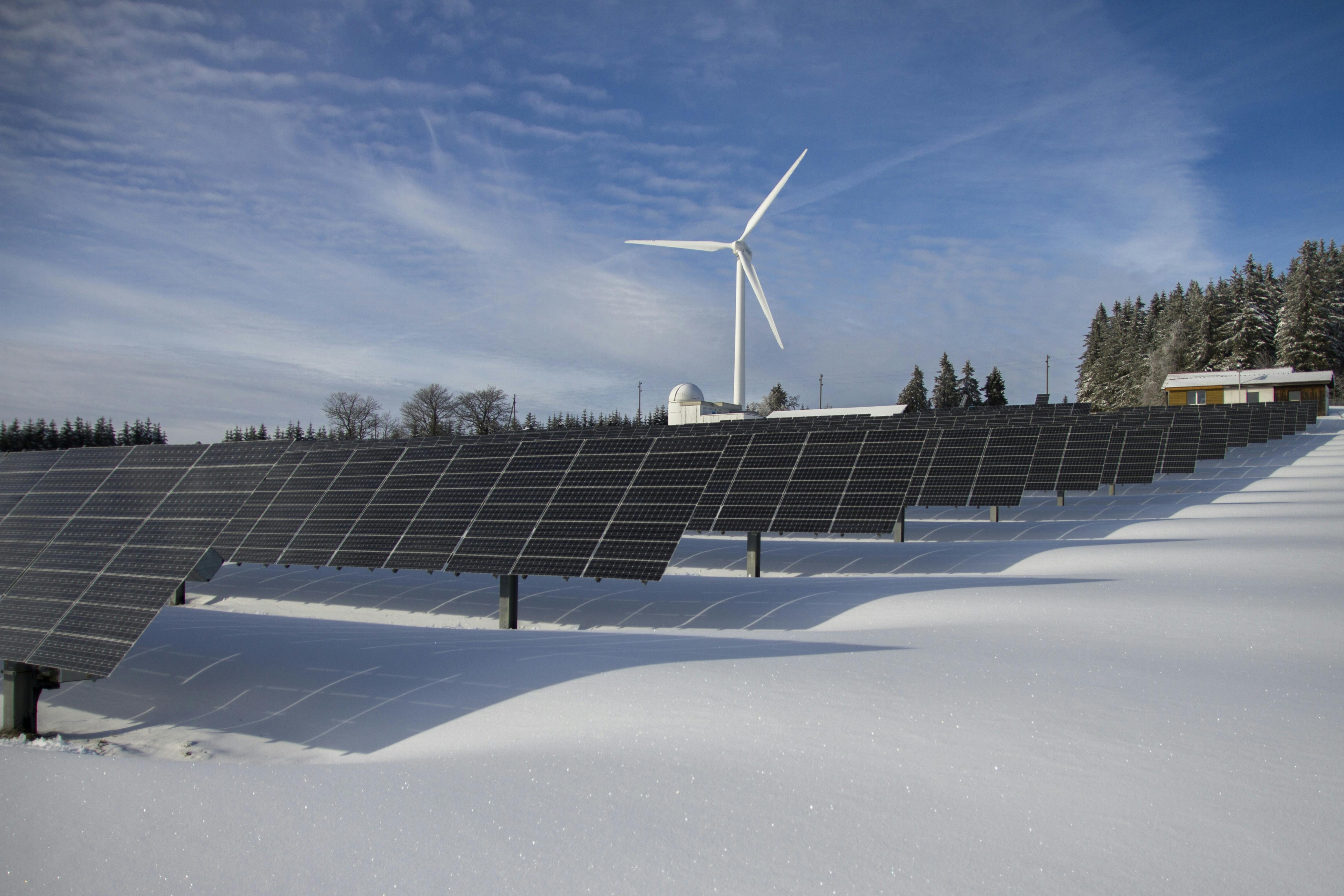How do solar panels work?
Our guide simplifies solar technology, explaining how solar panels work in under 5 minutes.

Our guide provides a clear and simple explanation of how solar panels work in just five minutes.
Curious about the environmental impact of your home? It’s surprising to learn that homes account for around one-fourth of our carbon footprint. Addressing home emissions is a major challenge, but solar panels offer a practical solution. Embracing solar technology isn’t just a passing trend—it’s a smart choice. By installing solar panels, households can cut emissions by up to a tonne of CO2 annually, making a significant positive impact on the environment while also reducing energy bills.
With so many solar panel options available, finding the right system can be daunting. But don’t worry, we’re here to help! Our guide will cover everything you need to know about solar panels, from the basics to the details, all in under five minutes.
Key Takeaways:
How Do Solar Panels Generate Electricity?
Solar panels utilise photovoltaic (PV) materials to convert sunlight into usable electricity. These panels are commonly referred to as Solar PV, Photovoltaic panels, or simply PV panels. The amount of electricity they produce depends on the intensity of the sunlight—brighter and more direct sunlight results in higher electricity generation.
It's important to note that solar panels differ from Solar Thermal panels. While PV panels are designed to generate electricity from sunlight, Solar Thermal panels are specifically used for heating water. So, if you're aiming to generate electricity, PV panels are the way to go, whereas Solar Thermal panels are suited for water heating.
Do solar panels produce AC or DC electricity?
The power generated by solar panels is in the form of direct current (DC), while our homes operate on alternating current (AC). Therefore, to harness solar energy efficiently at home, we rely on a solar inverter - a compact device resembling a small suitcase, usually discretely installed in inconspicuous locations such as the loft or under the stairs. The size of the inverter corresponds to the magnitude of the solar system; larger setups require more substantial inverters to handle the solar power influx effectively.
This essential component ensures the seamless integration of solar energy into your household electricity supply, optimising both the benefits of renewable energy and your environmental impact. By converting DC to AC, the inverter ensures that the electricity produced by your solar panels aligns perfectly with the needs of your home, providing a consistent and reliable power source.
How Many Watts Do Solar Panels Produce Per Hour?
Solar panels, whether operating independently or as part of a solar system, are evaluated based on their power output, expressed in watts (W) or kilowatts (kW). This rating serves as a gauge for the electricity they can generate under optimal conditions.
When contemplating an investment in solar panels, it's imperative to consider this power output. This metric determines the system's electricity generation capacity, significantly influencing its efficiency and potential impact on reducing your energy expenses.
You can estimate your potential solar panel output using our tool.
When it comes to solar panels, their power output capacities vary significantly. Take, for instance, our offerings, with panels proudly boasting an impressive 365W output each. Imagine this: choosing a set of 10 panels translates to a combined maximum output of 3650W, a robust equivalent to 3.65kW, ushering in a wave of sustainable power for your property.
Is Energy Storage Possible with Solar Panels?
While solar panels themselves don't have the ability to store energy, there's a smart solution to maximise their benefits - enter solar batteries. These nifty devices work hand in hand with your solar panels, diligently storing surplus energy generated during the day. When the sun sets or during unexpected power outages, these batteries kick in, providing a reliable source of energy.
This seamless collaboration not only boosts your energy independence but also adds an extra layer of security to your power supply. It's like having a backup plan that ensures you stay powered up even when the sun takes a break.
How Much Energy Does A Solar Panel Produce?
Have a look below for a few more examples of how much energy different amounts of solar panels could produce.
Size of panel, Number of panels & Maximum output:
- 365W, 1 panel, 0.365kW
- 365W, 12 panels, 4.380kW
- 365W, 14 panels, 5.110kW
- 365W, 16 panels, 5.840kW
- 365W, 17 panels, 6.205kW
It's crucial to be aware that if the anticipated peak output of your solar system exceeds 4.68 kW, obtaining approval from your local District Network Operator (DNO) is mandatory. The good news is, when you schedule an installation with us, we take care of the application process on your behalf. However, if you opt to handle the application independently, you can locate your specific DNO for the submission process by clicking here.
How Long Do Solar Panels Last?
Solar panels generally last for at least 25 years. This remarkable track record, though, is shaped by the distinctive qualities of each panel type and a multitude of external factors.
Check out our solar panel efficiency guide to uncover the intricacies that contribute to the enduring performance of solar panels and arm yourself with insights for a sustainable energy future.
Is it necessary to notify my electricity provider about my solar panel installation?
In short, yes you do.
Informing your electricity supplier is crucial when you install solar panels. This is essential to comply with regulatory requirements or access available incentives. Additionally, depending on your location, there could be specific technical specifications and safety standards that your solar panel system must meet.
What's The Difference Between Mono & Poly?
The key component in solar panels responsible for generating electricity is photovoltaic material, primarily made from silicon crystals extracted from abundant sand. This silicon is processed in two main ways:
1. Monocrystalline Panels - These are created from a single, continuous silicon crystal. Monocrystalline panels are known for their high efficiency, converting sunlight into electricity at rates between 15% and 22%.
2. Polycrystalline Panels - Made from a cluster of silicon crystals melted together, polycrystalline panels are slightly less efficient, with conversion rates ranging from 13% to 18%. However, they offer a more cost-effective alternative to monocrystalline panels.
3. Thin-Film Panels - made from materials like Cadmium-Telluride, are the most cost-effective option but have lower efficiency compared to silicon-based panels. These panels are lightweight and flexible, making them suitable for applications where weight is a concern, such as on rooftops of camper vans or warehouses.
For most residential needs, monocrystalline and polycrystalline panels strike a good balance between efficiency, cost, and practicality.
Recommended Guide: How Much Do Solar Panels Cost In The UK?
How Long Does A Solar Power Installation Take?
Typically, when you're getting solar panels installed at home, the whole process wraps up in just one day. This means you can enjoy the benefits of solar energy without any long wait times or major disruptions to your daily life.
What is the process of getting solar panels?
Our process is extremely straightforward, if we may say so ourselves:
1. Spend 5 minutes on our platform (you’ll find the MakeMyHouseGreen platform here) and we’ll give you an accurate understanding of how much money and carbon you can save, as well as an estimation of the cost of solar panel installation.
2. Your solar panels quotes are just a click away with: “Get quote”!
3. Book a call with a Green Homes Guru, your own money saving expert on everything solar panels, who will then provide detailed options for you and your home.
4. Book a remote survey to finalise details.
5. Book the install.
6. Make your own electricity!
Now equipped with expert knowledge in solar panels, you're well-positioned to make the optimal choice for your solar energy system. Your understanding of various panel types, efficiency factors, and installation considerations empowers you to make informed decisions, ensuring your system aligns seamlessly with your energy goals. Embrace the power of solar with confidence, knowing you've made a choice that not only benefits your home but also contributes to a sustainable and greener future. Discover more about other aspects of solar systems in our related articles.
Our extensive content ensures you have a thorough understanding of all elements associated with solar systems. but if you have any questions in the meantime, check out our Guru FAQS or drop us an email via team@makemyhousegreen.com.
Recommended Guides:
Ready to see what you can save?
Our solar calculator is 100% free to use. Enter your postcode below to get started.

Based on 400+ Trustpilot reviews






